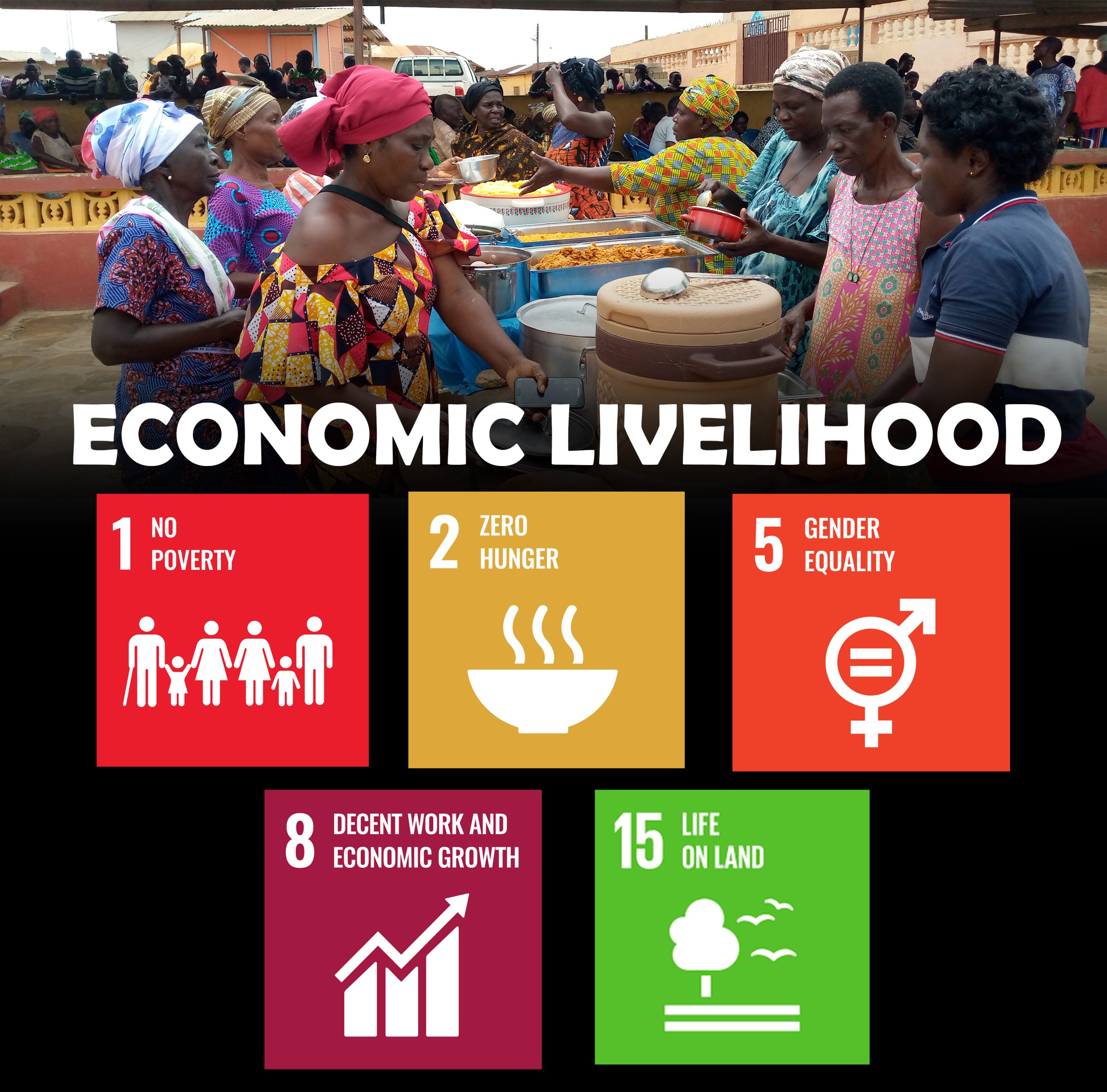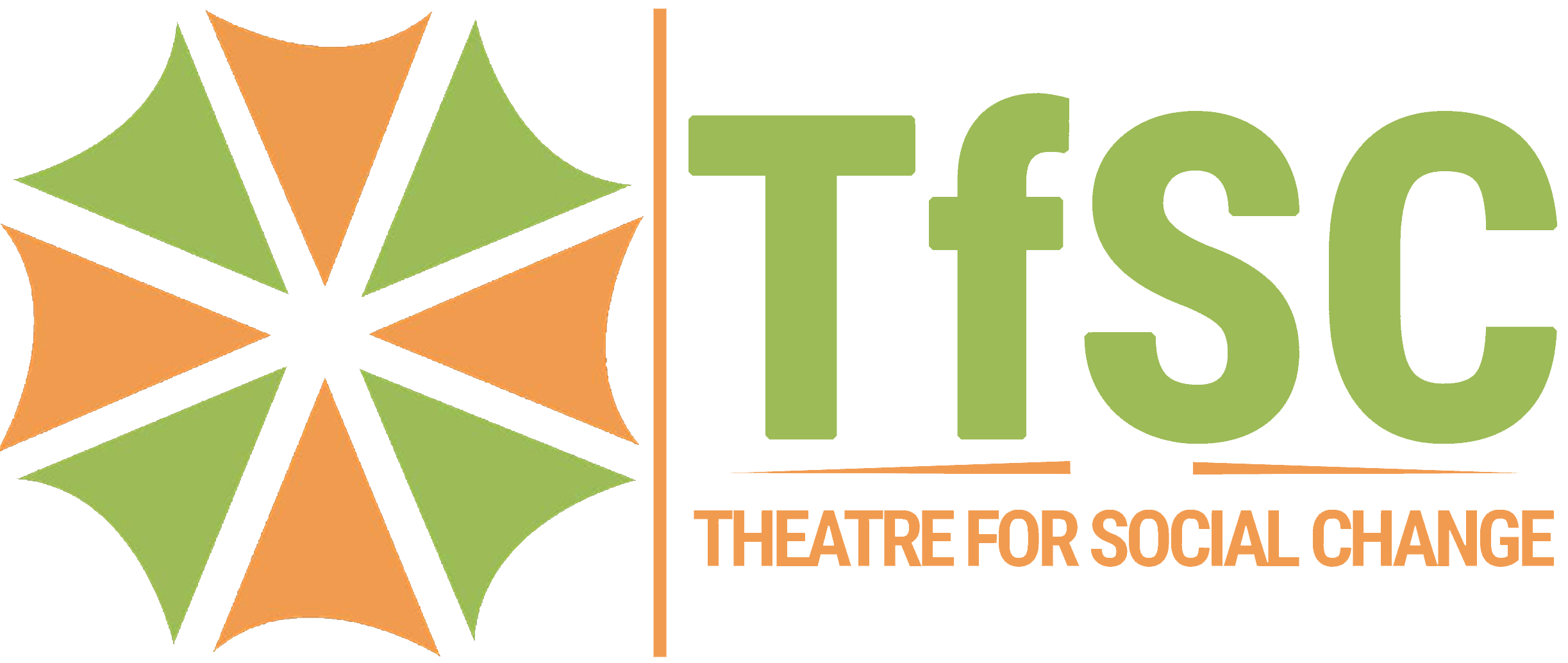ECONOMIC LIVELIHOOD

Making individuals resilient, informed, and empowered entails equipping them with enduring livelihood methods, ensuring economic inclusivity, and enhancing their social protection and family food security. TfSC’s economic livelihood improvement strategy is rooted in empowerment, poverty alleviation, business expansion, community economic growth, and employment generation. We champion sustainable agricultural practices that address the root agrarian contributors to climate change. TfSC envisions an environment where every individual thrives, where poverty sees a marked reduction, and where communities harness new-found energy and purpose to build and bolster sustainable livelihoods, uplifting themselves and their neighbours. Our eight-year projection targets a vast number of beneficiaries to reap these benefits.
Realizing people’s dreams hinges on a thorough understanding of local conditions, resources, aspirations, market dynamics, and the application of suitable techniques. This involves nurturing the potential of street vendors, artisans like carpenters, machine shop workers, tailors, hairdressers, and peasant farmers, and equipping them with the requisite skills to bolster economic growth, social cohesion, and equity.
Key Objectives:
- Business Value Chain: Cultivate value-chain business concepts and establish businesses tailored to individual needs.
- Skill-based Training: Offer comprehensive business skills training encompassing life skills, entrepreneurship, and financial literacy, including areas like bookkeeping, marketing, finance, legal knowledge, communication, negotiation, decision-making, and time management.
- Technical & Vocational Training: Provide TVET to equip individuals with the technical expertise necessary for income-generating activities.
- Ethical Business Practices: Highlight the importance of integrity, human rights, gender equality, and social inclusion in business.
- Empowerment & Networking: Encourage empowerment, mentoring, economic incentives, and facilitate connections to markets, buyers, investors, and processors.
- Climate-Resilient Programs: Launch programs that focus on sustainable income generation while being resilient to climate change impacts.
- Microenterprise Development: Support micro-business initiatives to diversify income sources and safeguard vulnerable employment sectors.
- Tailored Livelihood Programs: Curate livelihood programs befitting specific environments.
Action Plan:
- Program Design: TfSC’s strategy will be moulded by the specific local and target demographic, emphasizing:
- Initiating new business ventures or augmenting existing ones.
- Ensuring access to starting capital.
- Delivering comprehensive business training, technical guidance, and sustained post-launch support.
- Capacity Building: Focus on enhancing the capabilities of the youth, school dropouts, and the women in income generation, responsible farming, and sustainable business practices.
- Strategic Services:
- Community Involvement: Scout and guide potential entrepreneurs, especially young people, girls, and women, assisting them in their journey from conceptualization to realization.
- Skill Development & Technical Services: Equip them with business management skills, offer guidance in finance navigation – from securing loans to attracting investors.
- Personal Growth: Enhance their communication, negotiation, time management, and goal-setting skills.
- Financial Acumen: Introduce them to various financing methods like family loans, peer loans, and cooperative loans, and emphasize the importance of responsible business practices.
In this roadmap, TfSC seeks to be the beacon guiding individuals towards economic empowerment and sustainable growth.
